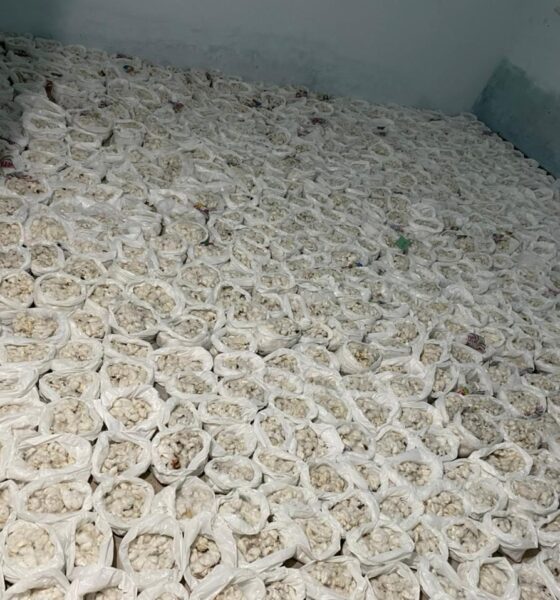
“The organic cotton T-shirt may not be as organic as you think” – says the NYT
Unfortunately, in general, probably a very true statement! But not true for us!
We appreciate, that NYT has raised the attention for the problematic situation in organic cotton market and we regret that the NYT article, in describing the general situation in India during its investigations, could not delve deeper into the complex situation.
Swiss organic cotton pioneer Remei is redefining textile production with its fully transparent supply chain from fibre to fashion and its all-holder value approach (a counter-model to standard shareholder value strategies). We believe in genuine relationships along the value chain and in a trusting and reliable partnership with organic cotton farmers.
We are much concerned about fraud in the certification practices in India and are monitoring the risk very closely since long time.
Cotton in general is facing a huge challenge in central India irrespective of organic or GMO conventional, mainly due to volatile weather conditions and an unprecedented pest attack of pink bollworm. Rainfall has been either very high or very low or coming at a later stage of the crop, pink bollworm is invariably attacking both organic as well as Bt cotton (GM conventional cotton) in the last three years.
Our field observations say that yields are lower in organic cotton compared to Bt cotton, which has been also coming out of a long term system comparison study in 2021, but showing also, that there are high variations in on-farm cotton productivity and profitability in view of gross margin and total production costs.
We are convinced, that organic farmers need close connection and reliable partnerships to be able to benefit from organic farming.
In contrast to the growth rates in organic cotton in India, mentioned in the NYTarticle, Remei has not been able to achieve a growth in organic cotton in India.
We produce only small quantities of organic cotton in India, since the challenges had already reached their first peak in 2015. We are facing a severe shortage of GMO-free seeds for cultivation.
Since 2010 Remei supports seed research and invests in cultivation of own GMO-free seeds for the registered farmers. However the seed quantity is not not easy to grow, as it is a very slow process.
Additionally a sophisticated control system had to be established by our organisation in order to assure that no GMO contamination comes into seeds or along the supply chain.
The key to any existence of organic cotton is a trustful relationship to farmers directly.
Since the late 1990ies Remei is giving Purchasing Guarantee in long-advance to the registered farmers directly, this to ensure as much economic, predictable basis for farmers to convert their farm to organic agriculture.
Since the beginning of our operations, Remei has continuously paid premiums to registered farmers. In fiscal year 2020/21, a milestone was reached as Remei exceeded the threshold of CHF 7 million in total premium payments to organic cotton farmers since 2007, since the premium per year has been reported in the financial statements.
We started working on organic cotton-based-system than just organic cotton.
We have been paying 15% premium to organic cotton farmers, but premium alone can not support the yield gap. In this aspect, we are trying to bring additional, innovative and high value crops as rotational and alternative crops in the cotton system which can offer good value to farmers. We already had trials with Moringa, Wheatgrass, Garlic, Basil, Ashwagandha and Brahmi, and started to promote these crops with assured market for farmers.
This shall support the cotton farm economy as a whole and farmers economic dependence on cotton alone will be greatly supported with positive income from other crops which grows well with organic cotton.
Additionally, we are supporting farmers with good quality seeds and also setting up a biofertlizer and biopesticide unit to reduce their cost of cultivation and give them quality inputs for soil fertility and pest management.
Beside, additional support to farmers is needed in the In-Conversion period with purchasing guarantee and premium. We are observing, that Indian farmers struggle a lot during the first 2 years when they need to convert their farm from immense use of chemicals for conventional practices into organic cotton farming.
We are convinced, that organic cotton needs and deserves a higher price compared to conventional cotton.
Relationship-management with farmers, training services, a reliable Internal Control system, correct certification systems and the implementation of traceability of textiles to its origin etc. need high investments.
We are convinced that what matters is authentic relationships instead of “trade papers”, because organic cotton means definitely more than just a certified commodity. By engaging organic cotton farmers in a transparent and complete, textile supply chain system, Remei can develop an innovative and participatory system that decision makers from retailers and brands can access.
For Remei organic cotton is the key to a sustainable development for organic cotton farmers, for us as well as for brands. Therefore, we share our supply chain information by QR code with every final textiles, which is generated in our transparent supply chain. On my-trace.ch by Remei ready-made textiles can be tracked back to its origin: From Fibre to fashion.
NYT article, 13.02.2022
Organic Cotton Fraud isn’t the problem – it’s a symptom of a system that’s forgotten farmers: Go to the article of Cotton Diaries

